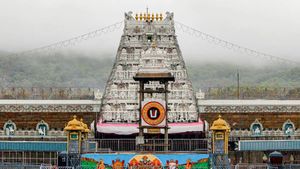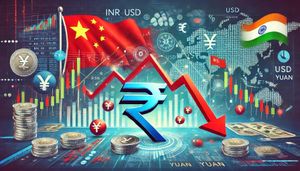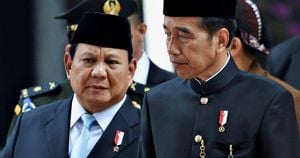Japan's political scene is once again shrouded in uncertainty following the recent Lower House election results, significantly impacting the popularity and credibility of the ruling Liberal Democratic Party (LDP) and its Prime Minister, Shigeru Ishiba. The election, held on the last Sunday of October, saw the LDP grappling with major setbacks as they failed to secure even the minimum number of seats they had publicly aimed for, leading many to question the future direction of the party and the government itself.
The fallout from this election has ignited discussions about potential leadership changes within the party. Amidst the controversy, Ishiba remains adamant about his commitment to lead the government, citing the need for stability of the state and continued focus on national issues. Yet the general sentiment among party members, and the general public, is steeped in disappointment and frustration with the current leadership.
At the heart of this turmoil is the resignation of prominent LDP election campaign committee chairman, Shinjiro Koizumi, who publicly stated, "I take responsibility for the results of the election." Koizumi's resignation has significantly amplified calls for Ishiba to follow suit. With many party members echoing Koizumi's pleas for accountability, there's mounting pressure on Ishiba to reevaluate his position and potentially resign as well.
While Ishiba has expressed desire to reflect sincerely on the election outcomes, his statements have lacked the fervor of true remorse. Claiming he intends to take the electorate's verdict to heart, he nonetheless expounded on the responsibilities of government, reiteratively stressing the need to mitigate stagnation in national politics and maintain focus on pressing issues, such as national security and disaster response.
Critics, including political analysts and opposition leaders, find Ishiba's insistence on staying the course particularly troubling. They argue it reveals his inability to recognize the electorate's resolve and dissatisfaction with his leadership. "It would be naive and undemocratic for him to think he can regain public support whilst ignoring this clear judgment," commented Hiroshi Moriyama, LDP Secretary-General, emphasizing the widespread weariness within both the party and among voters at large.
The LDP's experience during the recent election was sobering considering its long-standing dominance over Japan's political arena. The party has historically been seen as Japan’s political backbone, enjoying unchallenged control due to its strong electoral mechanisms and considerable influence. Yet, this performance, marked by significant seat losses, symbolizes shifting voter attitudes and raises serious questions about the future viability of the LDP under its current leadership.
Adding to the unease, the Komeito party, also part of the ruling coalition, found its performance faltering as well, fuelling uncertainty about the efficacy of the ruling alliance. The coalition had counted on leveraging the LDP's established support base to protect its political interests, but the recent developments suggest the tide is turning, and realignments may be on the horizon.
Former Prime Minister Shinzo Abe—a pivotal figure throughout Ishiba’s political ascendancy—faced similar criticism during his tenure whenever electoral defeats occurred. Back then, Ishiba himself was vocal about the necessity for accountability, and many wonder if he can withstand the same scrutiny now. Should he fail to acknowledge the patterns of public discontent, he risks perpetuating the very stagnation he condemns.
The prospect of new leadership looms larger with public opinion indicators reflecting dissatisfaction not just with Ishiba but with the party's broader policy agenda. Observers suggest significant changes may be required, including strategic reevaluations within party objectives, engagement with constituents to restore trust, and possibly engaging with opposition factions to rejuvenate legislative collaboration and good governance.
Many believe Japan's issues transcend political party lines and require holistic approaches, particularly addressing Japan’s declining birth rates, economic sluggishness, and strained international relations. Contenders for Ishiba’s post, if he were to step down, may include individuals who advocate for more progressive policies, tackling both socio-political and economic challenges with renewed vigor.
Further complicity arises as the international community watches closely; Japan plays a pivotal role not only within the Asia-Pacific region but also on broader global platforms where stability is tantamount. Experts indicate political upheaval could lead to challenges related to foreign policy, trade negotiations, and defense collaborations.
Despite the challenges, it's imperative for the LDP and Ishiba, if he retains his position, to constructively engage with the electorate, bolster transparency, and cultivate trust. These foundational components are increasingly necessary to navigate the turbulent waters of modern governance and to reconvene political legitimacy.
Looking forward, there seems to be no easy fix to Japan's political predicament. The stakes are as high as the expectations, and both public officials and citizens await the subsequent developments as the narrative around Japan’s political future continues to evolve. Will Ishiba demonstrate adaptability and willing to learn from the recent backlash, or will he become yet another emblem of political stagnation? Only time will tell.
What remains clear is the urgent demand from the Japanese electorate for sincere reflection, pragmatic policy-making, and leadership willing to embrace change. The time for action is now, whether it be through leadership transitions or fundamental reexaminations of policy agendas. The future of Japan’s political ecosystem hangs delicately between tradition and innovation, as voters prepare for what may very well be the dawn of new political dynamics.



